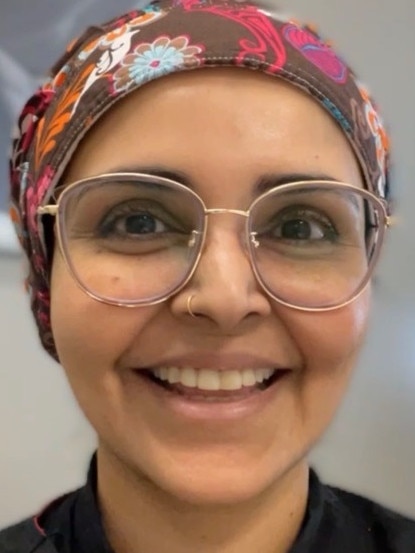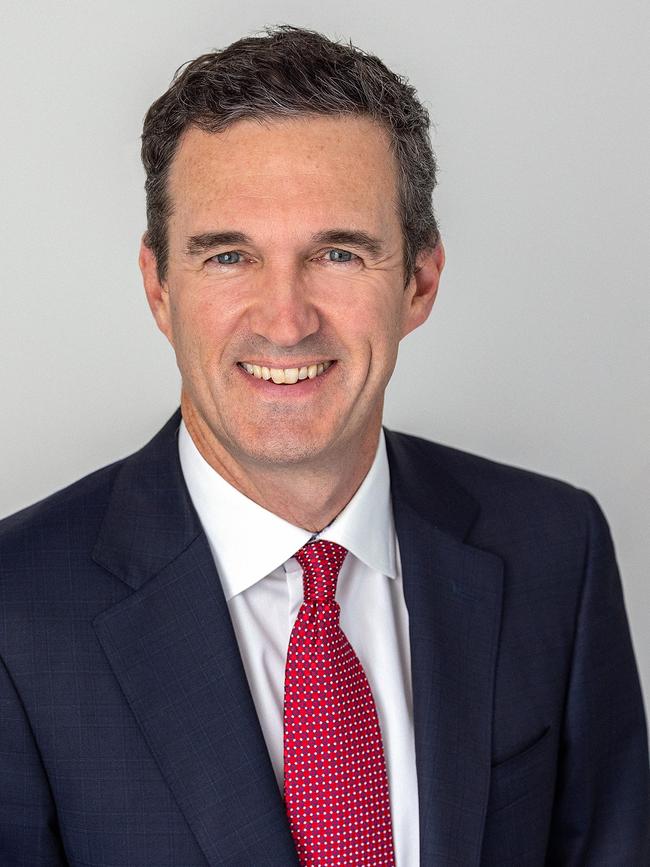Cosmetic injectables: who decides competency?
‘It just started feeling really, really, unsafe’: calls for nationally recognised minimum training standards to be applied to those practising cosmetic injectables.

“Is that illegal? I don’t know. That’s a call for the regulators.”
That’s Dr John Delaney, co-founder of Fresh Clinics, one of the nation’s largest business-to-business cosmetics companies.
He is talking about practices in the industry affecting the chain of prescribing: when cosmetic injectables such as Botox and filler are consigned to a clinic under the name of one doctor but then authorised for use on a patient by a completely different doctor.
Dr Delaney is in the spotlight after questions were raised about doctors spending less than a minute on telehealth calls to prescribe injectables for patients at clinics.
Dr Delaney disagrees the industry is awash with wrongdoing, though he concedes some practices may need some clarification around their legality, blaming opaque rules.
“There is a challenge, I think, where people will order medicines under the name of one doctor and then have it authorised through a completely different channel,” he says.
“Our preference from the regulators would be to say, ‘if you’re a nurse and medicine is being consigned to your practice, you need to then get the authority for the use of that medicine from the same clinical network that you procure that consignment or you request that consignment’.
“Is it happening in the industry that people are ordering (restricted medications) and the doctors are not particularly involved? Yeah, I mean, that’s happening.
“But is that illegal? I don’t know. That’s a call for the regulators.”
It’s just one practice that seems to be clouded in uncertainty in an industry that has become a multibillion-dollar business in Australia.
Dr Delaney is a recognisable figure in the industry. This year, The Australian and Nine Newspapers have raised questions over a lack of regulation of the industry, amid reports of serious injuries to some patients.
Dr Imaan Joshi is a specialist GP who operates her own cosmetic clinic but started out as a telehealth prescriber in the industry. She’s had a front-row seat as the industry has boomed but worries a lack of minimum training standards and an influx of injectors have paved the way for poor standards.
It’s a concern backed by the head of the Australian Society of Plastic Surgeons, Dr David Morgan, who says there appears to be little appreciation for the potential harms of non-surgical cosmetics. He thinks regulatory reform and increased enforcement are needed now, before the problem gets too big to fix.
One doctor, who did not want to be identified out of fear of backlash, shared a worrying prediction: “It’s only a matter of time before somebody has skin dying, or a lip falling off, or half their face falling off, and then all of a sudden people are going to have a kneejerk reaction and go, ‘Oh my god, why is this happening?’.”


No minimum training standards
“Who sets the standards? When there is no standardisation and no minimum standards of training, who decides you’re competent?”
It’s a reasonable question posed by a doctor working in aesthetic medicine.
But the answer might shock you.
“There is no minimum standard for entry into cosmetics beyond being a fully registered AHPRA healthcare provider. It also means that at the moment, there is no formalised training program,” says Dr Joshi, in response to her own question.
She’s been practising medicine for 24 years and began as an accredited trainee in obstetrics and gynaecology before switching to be a specialist GP. For the past 10 years she has also been working in aesthetics medicine and runs her own clinic in Sydney’s south.
Dr Joshi is advocating for minimum postgraduate training standards to be mandated and applied to anyone who wants to perform non-surgical cosmetics.
“For the public, they don’t know whether (their practitioner) is somebody who’s done a one-week boot camp and is working independently, or someone who’s had many years working in medicine, hopefully with a solid background in emergency medicine or managing emergencies.
“At the end of the day, it’s the patients who suffer.”
The Australian understands the concept of minimum standards was discussed at length at last weekend’s symposium of the Australasian Society of Cosmetic and Procedural Dermatologists.
In one address, a speaker suggests minimum training standards be introduced potentially requiring a minimum qualification level of Registered Nurse, for any injector to have 12 months medical/nursing experience, and for there to be industry-recognised training programs.
As it stands, companies such as Fresh Clinics offer short “boot camp” training courses to injectors. Dr Delaney describes that training as being of a “high” standard. However, that standard is self-determined and governed.
“We challenge the perception that the issues in the industry are related to under-training,” he says.
“I think it is reasonable that you have minimum standards of competency. We certainly advocate strongly for increased training. We advocate strongly for clarity around minimum standards of training.”
Robin Curran is a nurse practitioner in southern Queensland who offers training in aesthetics and has worked in the industry since 2010, and backs calls for improvements.
“I think that the industry has evolved faster than the regulations,” she says.
“To ensure the safety of the nurse, the doctor and the patient, there should be some minimum standards on education and practice location because what we do is applied medicine and requires hours of supervised treatments to ensure the practitioner is competent.”
She says training is also important to ensure practitioners know how to spot complications and understand how to fix them.
According to AHPRA, “codes of conduct and other national board regulatory documents already include expectations that practitioners will only practise within the limits of their skills and competence”.
“For example, the Code of Conduct shared by 12 national boards requires that practitioners ensure that they have sufficient training and/or qualifications to achieve competency when moving into a new area of practice, such as non-surgical cosmetic procedures,” the regulator says in a statement.
But with no accredited training for injectables, the question for regulators and medical boards to consider is whether they are still willing to let business decide what “competency” looks like.
Where is the oversight?
Part of the reason there are no minimum standards for the sector is that non-surgical cosmetics is not considered its own specialty.
There is no central college or industry body setting standards, ensuring compliance or dictating when an incident of harm needs to be reported to the relevant authorities. Nor is anyone in the industry lobbying regulators to make that happen.
It also makes it more complicated for an industry insider to make a complaint because they first need to determine if their complaint should be lodged with a federal or state regulator, or one of the many medical boards that oversee each profession. Typically, that could instead be guided by an accredited college.
Instead, instances of harm are largely self-governed, with only extreme cases of harm visible to regulators and the public. The regulator requires firm evidence of wrongdoing to investigate.
The Australian has spoken to several doctors who work in cosmetic injectables who say they are regularly asked for help to treat complications of injections gone wrong. One doctor said those asking for help are often injectors who are unsure of where to go to for help, or cannot get help because their prescribing doctor does not have adequate cosmetics experience or is uncontactable, or is too scared to admit to the complication. Complications are meant to be handled by the doctor who prescribes the medication.
The Australian Society of Plastic Surgeons says it is “deeply concerned” about the risks associated with non-surgical injectable procedures, especially as treatments become more popular.
“Any form of resurfacing procedure, if it’s done incorrectly, can leave permanent scarring, permanent pigmentary change of your skin,” president Dr Morgan says.
“Injectables, particularly fillers, there can be skin and tissue necrosis, so death if you inject into an artery, and if it’s the arteries that are around the eye, you can lead to blindness.”
The Australian asked the Therapeutic Goods Administration about the number of cases of patient harm, including blindness, it has confirmed in the past decade. The TGA did not respond by deadline.
The issue of telehealth
Another grey area covers the use of telehealth appointments.
Dr Delaney was recently criticised after a video emerged of a telehealth appointment he conducted for cosmetic injectables. The appointment lasted less than one minute. According to Nine Newspapers, the leaked clip was used as a training video for Fresh Clinics as an example of how to conduct a telehealth appointment.
The Australian spoke to Dr Delaney before the video’s release and quizzed him about the open secret of short telehealth appointments in the industry.
“I can’t comment on other clinicians’ behaviour,” he told The Australian. “I’m confident that I’m doing the right thing whenever I do these calls.
“If there was a suggestion that somehow patient outcomes would be improved by having no telehealth or reduced telehealth, or limits on telehealth, I’ve yet to see any evidence to that.”
In response to the since leaked video, Dr Delaney defended it.
“The video in question illustrates a less complex example of a telehealth consultation,” he says.
“In all cases, the doctor will review the case notes, patient history and consent documentation, have a verbal handover with the nurse, review the patient visually, discuss the risks and answer any questions the patient might have.”
However, the short consultation did spark conversations within the industry, including at the symposium of the Australasian Society of Cosmetic and Procedural Dermatologists. Attendees were reminded of their obligations, including that “prescribing medication is not a tick-and-flick exercise”.
“It’s only a matter of time before somebody has skin dying, or a lip falling off, or half their face falling off, and then all of a sudden people are going to have a kneejerk reaction and go, ‘Oh my god, why is this happening?’”
It also prompted a response from the national regulator, AHPRA.
“It is difficult to see how a doctor could meet all of their obligations in a 60-second consultation,” a spokesman said.
“AHPRA continues to hear anecdotes about inappropriate consultations in the cosmetic injectable industry. While AHPRA and the national boards can’t take regulatory action under the national law on the basis of an anecdote, we encourage patients and other practitioners to report their concerns to us and relevant authorities.”
But concerns about telehealth have been expressed for more than a decade.
When Dr Joshi entered the industry in 2015, she worked briefly as a telehealth prescriber for cosmetic injectables. She did not work for Fresh Clinics. In a shift lasting three to four hours, she estimates she would field more than 60 calls. In that time, she was also expected to complete all of the relevant paperwork.
“It just started feeling really, really unsafe,” she says.
“A lot of the times the phone calls were quite cursory and quite short, or I didn’t know the nurse who was going to inject the patient. I didn’t know his or her scope of practice or their practical experience; all of which is generally vetted in a hospital or aged care.
“It just started feeling really unsafe for me to be carrying that much responsibility for what was seen to be a relatively simple task.”
The Australian has spoken to another prescriber who confirmed similar practices.
AHPRA and the medical boards are reviewing guidelines governing non-surgical cosmetics. In a submission to regulators, the Royal Australian College of General Practitioners recommended an end to video consultations for the prescribing of cosmetic injectables.
“Allowing prescribing of injectables by video still presents a high level of risk and leaves the door open to medical companies profiteering from online dispensing of injectables,” the group wrote.
Where to now?
Achieving change in this industry will not be easy due to its size and power. In Queensland, the government is still being lobbied to reconsider a fact sheet the health department circulated in late 2024, reminding the sector of its legal obligations. According to the rules set out in the guidance, the majority of nurse-led clinics in the state are operating in breach of regulations.
The Australian has spoken to a range of people who work within the cosmetics sectors and there is consensus that if action is not taken to clean up the industry now, it will become far too large to control.
Federal regulators and the medical boards have been investigating the sector for years and have been meeting this month to finalise new guidelines. They are expected to be released within weeks.
“National boards for non-medical professions are close to establishing new guidelines to reinforce existing protections for the public, which aim to address the most significant risks in both the practice and advertising of non-surgical cosmetic procedures,” an AHPRA spokesman says.
Dr Morgan does not envy regulators.

“Regulators suddenly have understood that it is an industry that’s developed beyond the limits of the regulations and legislation as they stand, and part of the reason, I suspect, for the delay in releasing these guidelines is figuring out how best to manage that,” he says.
“They need to decide whether it can actually be reined in, or whether they need to have a rethink about what this element of the industry actually is, and how it should be best monitored, regulated and enforced.”
Dr Delaney again laid the question of what is right or wrong at the feet of regulators.
“This becomes about who is delivering this new demand of healthcare in a way that is safe and sustainable, and who is taking shortcuts and doing it in not the right way. For that to be clear, we need the right way to be defined by the government.”





To join the conversation, please log in. Don't have an account? Register
Join the conversation, you are commenting as Logout